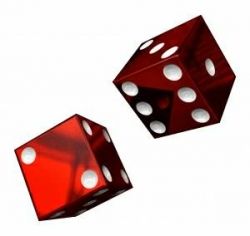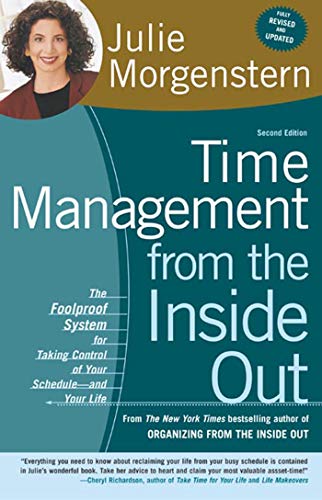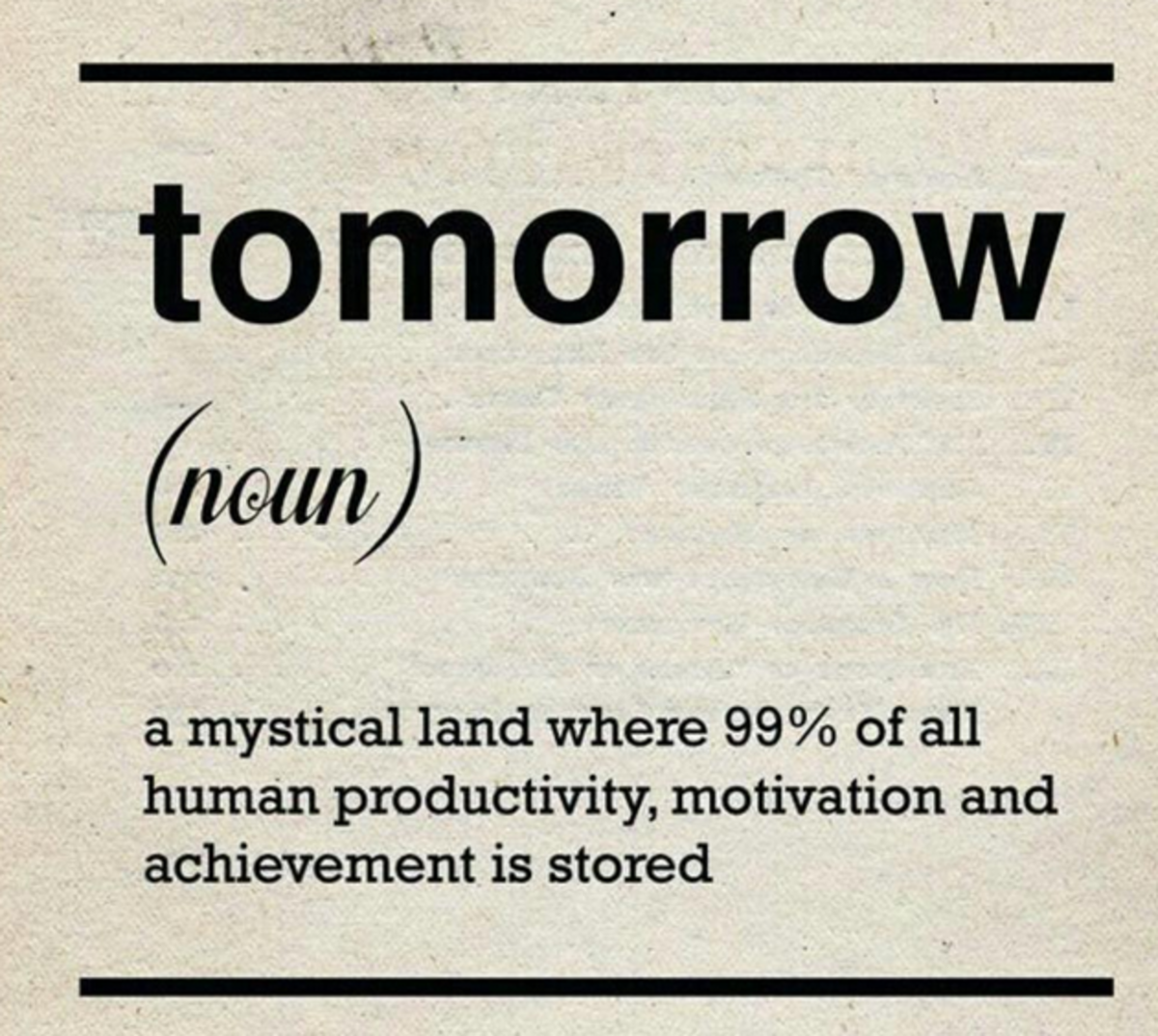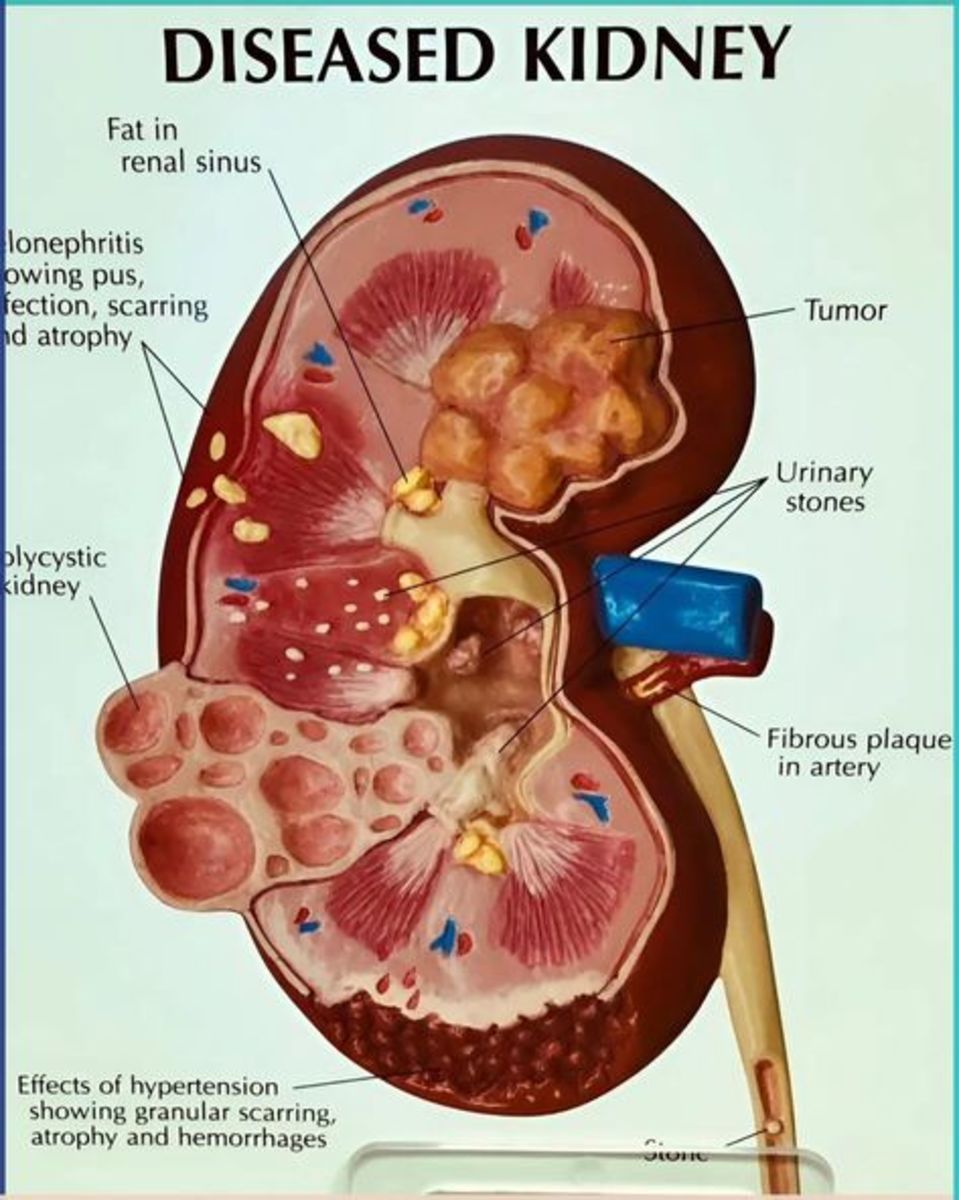Chronic Procrastination

What Is Chronic Procrastination?
What exactly is chronic procrastion? We usually procrastinate when we do smaller, unimportant things when we should be doing our main task, the one that needs our immediate attention.
We all procrastinate now and then, this is quite normal. However there are people who have a more serious problem, called chronic procrastination. And when I mean serious, I mean a matter that needs real help and support.
It is interesting to see the reactions of people when it comes to dealing with folks who procrastinate. In most cases they make fun of them. In extreme cases, they fire them from the business or simply detach themselves from them.
When we are dealing with simple day to day situations, curing procrastination is easy.
However people don't realize that if somebody is a chronic procrastinator, there is an underlying problem behind this, and it is not happening simply because of laziness, or because of simply being too comfortable to do the task at hand.
This is what I have started this article, because people need to be aware that chronic procrastination is a problem, an addictive one at that.

Is Chronic Procrastination An Addiction?
Until very recently studies were all pointing to procrastination being a time management problem. Basically they were saying that if you can't manage your time properly, if you are lazy, then you tend to procrastinate.
Psychologists and psychiatrists are trying to find the causes for procrastination. They say that if you find the major cause, then you can cure procrastination. And this is in many cases quite a valid way to go about it.
However this process is for regular people who procrastinate because they don't like the task they have to do, or because they're indeed lazy or because they don't have the right motivation.
But recent studies have shown a darker, deeper cause for many cases of procrastination: an addictive personality.
What do I mean by this? There are people who tend to get addicted to something. For example there is alcohol addiction, food addition or drug addiction. In most cases the addiction is not because of some problems the person had - but because the person needs to be addicted to something. If it weren't for the alcohol, then he'd be eating way too much, or taking various drugs.
It is the underlying psychological problem of addiction that really needs to be treated in this case, and not procrastination per se (or whatever other addiction the person is dealing with at the moment).
Do you think you are a chronic procrastinator?
Books Helping With Addiction

Chronic Procrastination And Time Management
One way I've seen therapists deal with procrastinators is by giving them various time management tools that should help them manage their time better.
However in most cases this is not helping, and the reason is what I mentioned before: an addictive personality will simply treat the new time management tool as a new toy to ... procrastinate instead of actually using the tool.
For regular cases beating procrastination can easily be done using time management techniques. There are various ways to do that, such as:
- Creating a place at home whereby you're not disturbed and committing to stay in that place for an x amount of hours
- Using a week and day planner for each task to be done (even including sleep, eating and having fun)
- Find out what times during the day you're lower on energy and schedule the tasks that don't need so much effort for those low energy periods
However for chronic procrastination this will not work. If you are a chronic procrastinator, you'll only use these tips above to do everything upside down. You'll focus so much on the tools themselves that you won't do your tasks...again.
Books That Help With Chronic Procrastination
I found that there are some books that really help with chronic procrastination. Sometimes you read a book and there is one single tip, one single sentence or phrase that will change your gears, that will give you the AHA moment, that will make the internal shift. You never know what will be the trigger. But it's worth finding out, don't you think?
Are You A Chronic Procrastinator?

Chronic Procrastination Is Really Compulsive Procrastination
So what does chronic procrastination have to do with gambling? Well not much, except...
Have you noticed that gamblers (who are of course addicted to gambling) say that it's really not the final payoff that gets their blood pumping, but the actual thrill of the game itself? Many gamblers are notorious losers. Some lose their homes, cars and everything else they own.
Compulsive procrastination, also called compulsive avoidance is just another name for chronic procrastination.
It's basically another form of addiction.
While in many cases it needs serious help from a dedicated (and professional) psychiatrist, there are cases when you can get over your chronic procrastination by simply doing the very thing you say you'll do WHEN you say you'll do it.
It is as simple as that. It is the willpower that you need to stick to your guns and do it instead of finding yet other ways to procrastinate.
I know, it's very simple, yet it needs lots of dedication and commitment. This is because of the addictive escapism that these types of personalities are dealing with and it is not easy to overcome it. But it can be done.

How To Get Rid Of Chronic Procrastination
Here is something that I found works quite well to get started with the task at hand. It is based on one of the principles of NLP (Neurolinguistic Programming). It is called anchoring.
What you do is find an anchor (an association) that will lead you to start the task you need to do.
Let's say you like a particular music or song. Put on that very song and get into the trance of listening it. Really "get into the zone" as spiritual Mia Dolan is saying. This creates a very positive mood in you which can be used to start working.
And here I mean just do a bit of work. If you are writing a book, then start a new chapter while listening to the music. 3-5 minutes initially are enough to create that connection, that association or what NLP calls that anchoring. It puts it in place.
Then stop and do something else. Next time you listen to the very song as well, push yourself to do just a bit of work. Not much, just a few sentences or paragraphs of that book you're writing. Just long enough to write while he song plays.
After a few times of doing this, your brain automatically associates that song with you doing this task. Eventually you won't even need the song, all you need is to think about the song and you'll start working. Similar to Pavlov's dog experiment. Just by hearing the bell, the dog was salivating, that's all it took, a couple of associations (anchors).
Remember
You can cure chronic procrastination. You don't need to go to a psychiatrist. Just follow the steps described here to get started!
Have you ever used anti-procrastinating tools and methods to cure your chronic procrastination?

Make The Tasks Manageable
One thing that always works in curing chronic procrastination (and in everything else as well) is by breaking down the tasks into smaller, more manageable bits.
Sometimes we procrastinate because we feel overwhelmed of the project standing in front of us. It's just too big like a mountain that you have to climb.
This is when you think differently. Even the biggest mountain can be climbed by taking one step at a time. Eventually, before you know it, you're looking down at the world below you from the top of the mountain.
I know it's clichee, but you know the story about eating an entire elephant...one bit at a time.
This is very true for chronic procrastination as well.
Start by simply writing down your major project and then splitting it into small chunks. However it is important that the small chunks actually include action steps that you will take. They should be quite specific as well.
And just as you deal with small tasks at one time, you also work little by little, in smaller chunks at the same time. It is the same thing really: don't think of the next task as spending the next 10 hours at your computer working on that book. THAT could be extremely overwhelming and the urge to procrastinate kicks in.
What you do is just as I mentioned above, put on the music of your choice, or pick up a timer (this could be another anchor for you, touching that alarm so you know that it's time to work) and set it for 5 minutes, 10 minutes or half an hour at most...at least early on. Using small blocks of time makes the task seem small and quite manageable.
Sometimes that's all it takes...to get started. Then the rest comes on its own...
Not always, but many times.
Find Books On Proper Time Management - They might not be the only solution, but they definitely help!
Curing Procrastination - Can Procrastination Be Cured At All?
Curing procrastination - what does the term actually mean? Can procrastination be cured? Can you make it end? Is there a hope for hopeless procrastinators? T...
Thank you for visiting my Chronic Procrastination lens. Please leave your comments below.


















